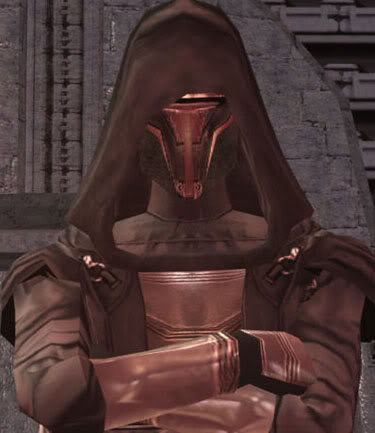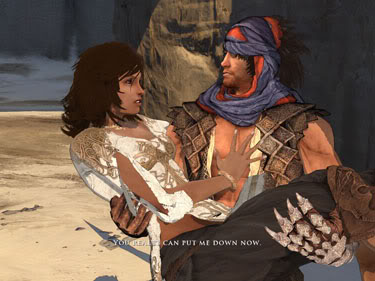This post has not been edited by the GamesBeat staff. Opinions by GamesBeat community writers do not necessarily reflect those of the staff.
However, apart from the obvious progression of technology, much has changed in the world of video games.
In the beginning, video games had a thinly veiled premise for what was taking place on the screen. Essentially, there was no real need to provide any context for what was happening. It was just supposed to be fun. Mario's legacy has not been enriched by a deep, compelling narrative. Pac-Man was not a household name because of the dark subtext behind the subtle switch of hunted and hunter. Space Invaders wasn't addictive due to its sci-fi depiction of an alien incursion.

That trend continues till this day. Video games are, in essence, about the interactivity. Story line is often overlooked or relegated to a lesser position so that the action and the user input can be maximised. Who cares why you're in an impoverished, oil-rich nation killing the local militia (although, you can probably guess) in Just Cause 2 as long as the explosions are loud and fiery and the acquisition of helicopters is nary but a trespass and a hookshot away? Does it matter that you're trapped in a zombie infested shopping mall for three days, a la Dead Rising 2, as long as the skull of the walking dead smears satisfyingly across your sledgehammer? Ultimately, in an interactive medium, the interactivity has to be engaging and worthwhile, otherwise why bother?
However, as the games industry evolved and protagonists were capable of looking more like a cartoon character and less of a badly rendered LEGO figurine, story line began to develop. While still unmistakably rudimentary, games even used the narrative to drive the on-screen action. Instead of murdering every blocky object that looked at you funny as you ran from left to right, gameplay began to reflect the ever present tale being told. Classic RPGs like Secret of Mana and The Legend of Zelda: A Link To The Past dropped the player into an engaging and remarkably vast world where their actions affected the progression of a tangible story. Still, as video games were still seen as children's toys, there was nothing in these basic story lines that challenged the status quo of Saturday morning cartoons. Some stories became even harder to decipher than some of their predecessors. For example, what kind of explanation was there for Super Mario Kart? Did Bowser apologise for kidnapping Peach and make amends by a little casual go-karting?
In a sense, narratives will always play a back seat to gameplay. If you were interested in the story alone, there are libraries full of fiction authors who've provided that very service. Video games allows us to delve into a fantasy world where we take on different identities and skill sets and have some fun. The degree to which people need a fully fleshed out universe in which to have that fun is relative to the person playing it. Some people just want to pick up an semi-automatic rifle and fill pixelated opponents with lead, while others wish to fully immerse themselves in a rich and encompassing alternate reality where their actions actually hold purpose to that world's fate. Ultimately, wherever the player sits on that lengthy spectrum, the gameplay has to be entertaining. Even with a sub-par story, a video game can be an acclaimed masterpiece as long as the gameplay is fantastic.
However, is the reverse true? Can a fantastic game exist purely, or substantially because of, its narrative?
Generally, I would say no, and that obviously underscores the importance of tight and involving gameplay. However, some of the most heart wrenching, brain bending moments I've ever come across have been from video games, gameplay be damned. For instance, the amazing twist about three quarters through Knights of the Old Republic, regardless of how I feel about the game itself (I enjoyed it, by the way), is one of those pivotal points in a game that sucks you in and gives a whole new reality to what you've done and what you could potentially do. It's these mental hooks that, to me, helps define the medium.

Games can explore anything and everything that makes humanity interesting; love, hate, friendship, loyalty, betrayal, honour, pride, greed, power … the list is interminable. Games can reflect the nature of our species in a way that no book can; by absorbing your decisions and your values, where what you do or what you say could make all the difference in what happens next. Or, conversely, putting you in the shoes of a predefined character with predefined attributes and flaws, and ushering you through an unforgettable tale.
A textbook example of a narrative propelling a game to loftier heights than the gameplay itself is the rebooted Prince of Persia. I never had the pleasure of playing the first trilogy much and so only had a basic idea of what I was getting myself into. On the surface, Prince of Persia seems like a pretty standard affair; a gruff, nomadic loner comes to the rescue of a defenseless young woman and forges a pact to help restore the beleaguered lands to their original condition. The gameplay comes to reinforce this; while the aerobatic parkouring is intuitive and enjoyable, and the vibrant watercolour graphics are a welcome artistic change, there's nothing particularly challenging or addictive. It's an easy going romp through a visually exciting world, but that's it.
(Note: spoilers abound in the remainder.)
But wait! The Prince and his female companion, Elika, share some amusing banter between swinging repeatedly on smooth wooden logs. As the pair wall jump and flip their way around the land, a gradual and unexpected respect kindles between them. What started out as a hindrance and a bother to the Prince is changing into something more. A friendship is born of their hardships. They begin to care about one another, no matter how little their stubborn bravadoes actually portray those feelings.
To further characterise their love/hate relationship, Elika's father is the one responsible for the horrid taint that they are removing. The Prince brings this up a little more often than he should, much to Elika's dismay. The Prince has little regard for her father, believing he released the dark evil for the promise of its power.

As the dynamic duo slay the generals of the enemy and march on the temple to halt the evil once and for all, the Prince learns of a secret Elika is hiding. Eventually, he discovers that Elika had died and her father gave up his freedom to the dark god in exchange for her resurrection.
After the defeat of Elika's father and its terrifying master, Elika performs a spell that will ensure the dark god will be imprisoned forever. What she doesn't tell the Prince is that it will cost her life. Once the mayhem of the final battle is over, the Prince realises what Elika has done. The land is free, but Elika is dead.
Now the Prince, who was a jaded, cynical jerk, who berated Elika's father's choice, tears the spell asunder to bring her back to life and releases the dark god once more.
This ending has stayed with me much longer than the enjoyment of the game has. The story speaks of the possibility of change in even the most foregone of us. It speaks of hypocrisy, of judging one of a heinous act when that very person ends up committing the same thing. It speaks of the strength of love and friendship in the darkest of times.
The message that I took away from Prince of Persia has nothing to do with the gameplay. It has to do with the interactions of the robust characters, the choices they make and the relationships that flower in the most unlikely of places. However, the impact would not be the same if it were the well written fable of a book. One of the hardest aspects of this ending is realising that you, as a player, have to tear down the progress of the entire game. The whole ten to twenty hours of purifying the land and returning peace is completely undone because of what the Prince, not you, decides. Whether you agree with him or not, its you who guides the blade through the trunks of the trees. It is you who plucks the spark of life and places it back in Elika.
To me, this made the occasionally repetitive trapezing and bland combat all the worthwhile.
Originally posted at http://8bitopinion.wordpress.com/
